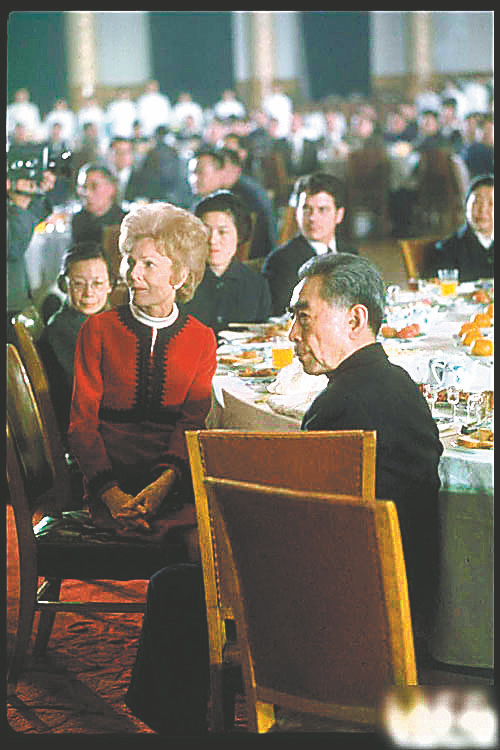

In fact, the two had had some intense exchanges with Zhou over the communique during their visit the previous October. (Between Kissinger's secret visit in July 1971 and the Nixon trip there were two additional, advance trips by US personnel to China to figure out all the substantive and logistic issues for the impending presidential visit. One was this October trip that included Kissinger and Lord, the other took place in January 1972.)
"Being a firm defender of Chinese national interests, Zhou was also willing to listen to the other side, to try to understand the national interests of our side and do so respectfully although firmly," Lord said. "Rather than haggling over details and inflating positions, Zhou established clear goals and bottom lines for the Chinese side that we could try to discuss with them together with our own goals and bottom lines."
And the premier, with his "tremendous command" of all issues strategic and tactical without the help of briefing books, had inadvertently heaped pressure on Kissinger, who tried to put away during the negotiations the big briefing books prepared for him by Lord "out of ego". (Nixon, for his part, liked to talk without notes "to impress people", a tendency "carried to a super level" on his own 1972 visit, Lord said.)
In October 1971, Zhou, who Lord believes "must have checked it with Chairman Mao", came up during a later stage of the negotiation with the idea of "a different kind of communique".
Previously, Kissinger and Lord had presented the Chinese with "a rather traditional type of diplomatic communique that is not naive but that makes it look like we were instant friends or allies".
Zhou's suggestion, "unprecedented in diplomatic practice" to quote Lord, was that each side would state its own position. "He seemed to be saying that having set out our differences, we would each have protected our domestic flanks, relationships with our friends and allies, and made more credible those areas of agreement when we stated them, because we had been honest enough in the rest of the communique to make the points," Lord said.
"Kissinger and I were at first disappointed that we weren't going to have some nice document that would record the major achievements at this forthcoming summit meeting, but we soon came to see the wisdom of this approach that Zhou had advocated."
That same night Kissinger and Lord spent in their guesthouse was a "frantic" one. The Chinese had stated their positions in a draft communique. And the two needed to proceed from that, to set forth the US position and to "beef up bilateral areas where we already converged and where we could make progress".